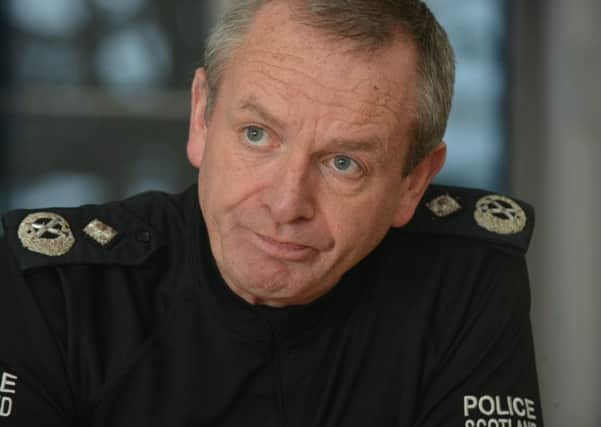John McLellan: Why Police Scotland needs colonic irrigation


While Fitzpatrick did nothing wrong, is it stretching the imagination too much to suggest that someone might have wondered why reimbursement for removal expenses was to be coded as childcare vouchers?
That the details were absent from the remuneration report and some authority members knew nothing about the payments until they saw the Audit Scotland document is hardly a shining example of openness.
Advertisement
Hide AdAdvertisement
Hide AdThe new Police Authority chair, ex-Edinburgh East MSP Susan Deacon, must wonder what she has let herself in for, but if she was in any doubt that the whole system needs the management equivalent of colonic irrigation she won’t be now.
From the call-centre nightmare, routine armed patrols, IT failures, spying on journalists, bullying claims, abuse of facilities and now financial laxity, insiders blame what they describe as Strathclyde Police’s high-handed attitude towards public accountability infecting the new force. Maybe, but the files stamped “Urgent” are piling up on the Chief Constable’s desk.
That desk is occupied by the former Lothian & Borders high-flyer Iain Livingstone who less than a year ago was about to walk away precisely because of the pressures he saw being brought to bear on his colleagues.
He agreed to postpone his retirement in September when Chief Constable Phil Gormley was forced to step aside because of the bullying allegations, and since then claims about misuse of police facilities have led to the suspension of Assistant Chief Constable Bernard Higgins.
Advertisement
Hide AdAdvertisement
Hide AdIt is looking increasingly unlikely that Gormley will return; from a police pension point of view he is already technically retired and his fixed contract will expire in autumn next year, probably at the same time as the current investigation is completed. So the immediate question is whether expedience means Livingstone should succeed him permanently.
Speaking to Scotland on Sunday last weekend, Livingstone said he would consider applying for the top job if the circumstances were right, but as far as pressure is concerned the conditions which led to his original retirement decision are not going to change. “The starting point for me would be the interests and views of my wife and family,” he said.
Livingstone’s capacity to withstand pressure was fully tested in 2003 when as an ambitious Superintendent he was accused of sexually assaulting a female colleague at a party during a residential course at the Tulliallan police college.
The Procurator Fiscal decided there was no criminal case to answer, but Livingstone still faced an internal disciplinary investigation and a year later the internal probe concluded there were sufficient grounds to bust him from superintendent to constable.
Advertisement
Hide AdAdvertisement
Hide AdBut he appealed and a second disciplinary process led by the Tayside Chief Constable found the L&B decision was “harsh, oppressive, and disproportionate” and he was reinstated, albeit with a reduction of two salary increments.
It is difficult to imagine an application from Livingstone would be considered without raking over the events which led to his temporary demotion and Susan Deacon’s priority will be to make sure the third chief constable is in it for the long haul. Having been set to walk away once, it’s unlikely to be Iain Livingstone.